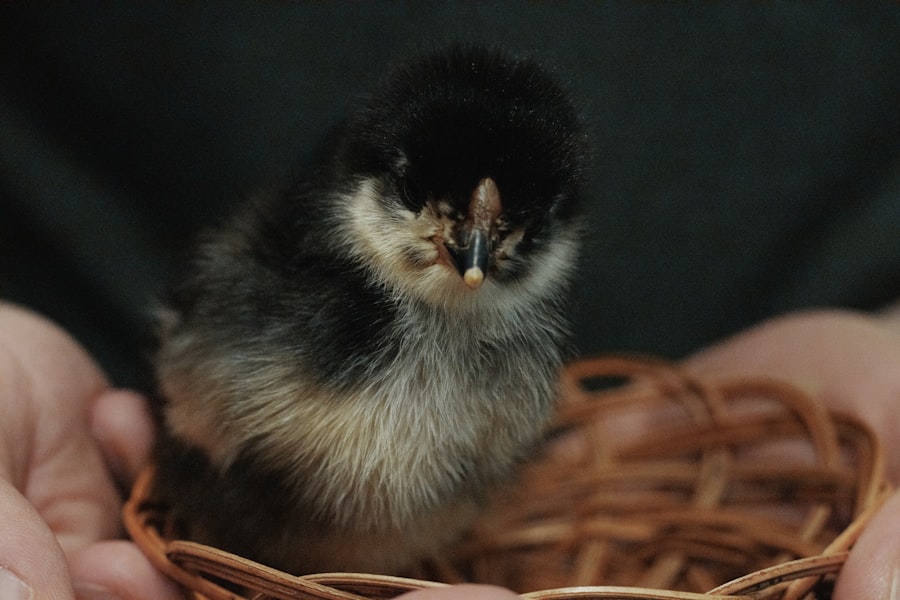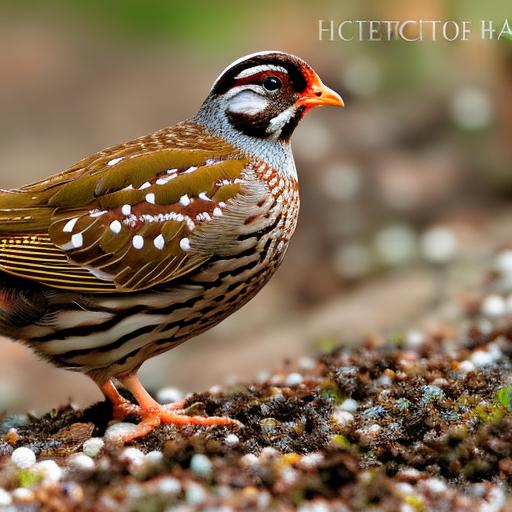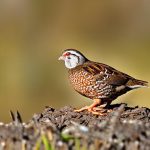Keeping quail hens in a colony setting can be a rewarding and efficient way to raise these small birds for eggs and meat. Unlike traditional single-cage setups, a quail colony allows for a more natural social environment, which can lead to improved welfare and productivity. In a colony, quail hens can exhibit their natural behaviors, such as dust bathing, foraging, and socializing, which can lead to healthier and happier birds. Additionally, colony living can also help reduce stress and aggression among the birds, leading to a more harmonious and productive flock.
Quail colonies can be set up in a variety of ways, from simple outdoor pens to more elaborate indoor setups. The key is to provide enough space for the birds to move around and interact with each other while also ensuring their safety and well-being. By understanding the needs of quail hens and providing them with a suitable environment, you can create a thriving colony that provides a sustainable source of eggs and meat for your household or small farm. In this article, we will explore the various aspects of keeping quail hens in a colony, including choosing the right breeds, setting up the ideal environment, managing social dynamics, feeding and nutrition, health and disease management, and breeding considerations.
Key Takeaways
- Keeping quail hens in a colony can be a rewarding and efficient way to raise these birds for eggs and meat.
- When choosing quail breeds for colony living, consider their temperament, egg production, and ability to thrive in a group setting.
- Setting up the ideal colony environment for quail hens involves providing ample space, shelter, and access to food and water.
- Managing social dynamics and pecking order in a quail colony requires monitoring for aggression and providing multiple feeding and watering stations.
- Feeding and nutrition for quail hens in a colony should include a balanced diet of commercial feed, fresh greens, and access to grit for digestion.
Choosing the Right Quail Breeds for Colony Living
When it comes to keeping quail hens in a colony, choosing the right breeds is crucial for the success of your flock. Different quail breeds have varying temperaments, egg-laying capabilities, and overall suitability for colony living. Some popular quail breeds for colony setups include Coturnix (Japanese) quail, Bobwhite quail, and California quail. Coturnix quail are known for their prolific egg-laying abilities and relatively calm demeanor, making them a popular choice for colony setups. Bobwhite quail are also commonly kept in colonies and are known for their hardiness and adaptability to various environments. California quail, while less common in captivity, can also thrive in a colony setting with the right care and management.
When selecting quail breeds for a colony, it’s important to consider factors such as egg production, temperament, size, and climate suitability. For example, if you live in a colder climate, you may want to choose quail breeds that are more cold-hardy and able to withstand lower temperatures. Additionally, some breeds may be more prone to aggression or dominance behaviors, which can impact the social dynamics within the colony. By carefully researching and selecting the right quail breeds for your specific needs and environment, you can set the stage for a successful and thriving quail colony.
Setting Up the Ideal Colony Environment for Quail Hens
Creating the ideal environment for a quail colony is essential for the health and well-being of the birds. Whether you choose to house your quail hens indoors or outdoors, there are several key factors to consider when setting up their living space. First and foremost, providing enough space for the birds to move around and engage in natural behaviors is crucial. For outdoor colonies, this may involve setting up large pens with plenty of ground cover, hiding spots, and perches for the birds to explore. Indoor colonies will require adequate space for the birds to move around freely without feeling cramped or overcrowded.
In addition to space considerations, providing suitable bedding material, such as straw or wood shavings, is important for maintaining a clean and comfortable living environment for the quail hens. Access to fresh water and a balanced diet is also essential for their overall health and productivity. Furthermore, ensuring protection from predators and extreme weather conditions is crucial for the safety of the birds. By creating a well-designed and carefully managed environment for your quail colony, you can help promote natural behaviors, reduce stress, and encourage optimal egg production.
Managing Social Dynamics and Pecking Order in a Quail Colony
In a quail colony setting, managing social dynamics and the establishment of a pecking order is an important aspect of maintaining a harmonious flock. Quail are social birds that naturally form hierarchies within their groups, with dominant individuals asserting their authority over others through pecking and other behaviors. Understanding and managing these social dynamics is crucial for preventing excessive aggression and ensuring the well-being of all birds in the colony.
One way to manage social dynamics in a quail colony is to provide enough space and resources to minimize competition and aggression among the birds. This can include providing multiple feeding and watering stations to prevent overcrowding and allowing birds to establish their own territories within the colony. Additionally, introducing new birds to an existing colony should be done gradually to minimize stress and potential conflicts. Monitoring the behavior of the birds regularly can help identify any issues with aggression or bullying within the flock.
It’s also important to provide enrichment activities, such as dust bathing areas and perches, to help reduce boredom and redirect any aggressive behaviors. By understanding the natural social behaviors of quail and taking proactive measures to manage their interactions within the colony, you can help create a more peaceful and productive living environment for your birds.
Feeding and Nutrition for Quail Hens in Colony
Proper feeding and nutrition are essential for maintaining the health and productivity of quail hens in a colony setting. A well-balanced diet that meets the nutritional needs of the birds is crucial for egg production, overall health, and disease resistance. Quail hens require a diet that is high in protein to support egg production, as well as essential vitamins and minerals for overall health.
Feeding a commercial quail feed that is specifically formulated for laying hens is an easy way to ensure that your birds are receiving the necessary nutrients. Additionally, supplementing their diet with fresh greens, fruits, and mealworms can provide additional variety and nutrition. It’s important to provide access to clean water at all times to prevent dehydration and support proper digestion.
Monitoring the body condition of the birds and adjusting their diet as needed can help prevent issues such as obesity or malnutrition. Additionally, providing access to grit or insoluble materials can help support proper digestion in quail hens. By paying close attention to the feeding and nutritional needs of your quail colony, you can help ensure that they remain healthy and productive.
Health and Disease Management in a Quail Colony

Maintaining the health of your quail colony is essential for their overall well-being and productivity. Preventing diseases through good management practices is key to keeping your birds healthy. Regularly cleaning and disinfecting their living environment can help reduce the risk of disease transmission. Additionally, monitoring the birds for any signs of illness or distress can help identify potential health issues early on.
Providing proper nutrition, access to clean water, and suitable living conditions can also help support the immune system of the birds and reduce their susceptibility to diseases. It’s important to be aware of common diseases that affect quail, such as coccidiosis and respiratory infections, and take proactive measures to prevent them through vaccination or other preventive measures.
In the event that a bird does become ill, isolating them from the rest of the flock can help prevent the spread of disease. Seeking veterinary care from a professional with experience in avian medicine is crucial for diagnosing and treating any health issues that may arise within the colony. By implementing good biosecurity practices and staying vigilant about the health of your quail hens, you can help maintain a healthy and thriving colony.
Breeding and Reproduction Considerations for Quail Hens in Colony
Breeding quail hens in a colony setting can be an efficient way to produce new generations of birds for egg production or meat. When it comes to breeding in a colony, it’s important to provide suitable nesting areas where hens can lay their eggs undisturbed. This can include providing nesting boxes or secluded areas within their living space where they feel safe and comfortable laying eggs.
Monitoring the behavior of the birds can help identify broody hens that may be interested in incubating their eggs. Allowing broody hens to incubate their eggs naturally can be an effective way to produce new generations of birds without the need for artificial incubation. However, if you’re interested in hatching larger numbers of eggs or controlling breeding more closely, using an artificial incubator may be necessary.
It’s important to carefully manage breeding within a quail colony to prevent overpopulation or excessive aggression among the birds. Understanding the reproductive behaviors of quail hens and providing suitable nesting areas can help promote successful breeding within the colony. By carefully managing breeding activities and providing appropriate care for broody hens and their offspring, you can help maintain a healthy and sustainable quail colony for years to come.
In conclusion, keeping quail hens in a colony setting offers numerous benefits in terms of welfare, productivity, and sustainability. By choosing suitable breeds, creating an ideal living environment, managing social dynamics, providing proper nutrition, maintaining health, and carefully managing breeding activities, you can create a thriving quail colony that provides a sustainable source of eggs and meat. With careful planning and management, keeping quail hens in a colony can be a rewarding experience that allows you to enjoy the natural behaviors of these fascinating birds while also reaping the benefits of their productivity.
If you’re considering keeping quail hens in a colony, you may also be interested in learning about the best locations for placing a chicken coop. Understanding the ideal environment for your poultry can greatly impact their well-being and productivity. Check out this helpful article on where to put a chicken coop to ensure that your quail hens and other poultry have the perfect living space.
FAQs
What is a quail hen colony?
A quail hen colony refers to a group of female quails living together in a shared space. This setup allows the quails to socialize, interact, and establish a pecking order within the group.
How many quail hens can be kept in a colony?
The number of quail hens that can be kept in a colony depends on the size of the enclosure and the behavior of the quails. Generally, it is recommended to have a minimum of 3-4 quail hens in a colony to prevent loneliness and social isolation.
What are the benefits of keeping quail hens in a colony?
Keeping quail hens in a colony allows them to exhibit natural social behaviors, reduces stress and boredom, and can lead to improved overall welfare. It also promotes natural pecking order establishment and can result in higher egg production.
What should be considered when setting up a quail hen colony?
When setting up a quail hen colony, it is important to provide adequate space, hiding spots, and multiple feeding and watering stations to prevent competition and aggression. Additionally, monitoring the behavior of the quails and providing proper nutrition is essential.
What are some challenges of keeping quail hens in a colony?
Challenges of keeping quail hens in a colony may include aggression, pecking order disputes, and potential for injuries. It is important to closely monitor the quails and be prepared to separate individuals if necessary. Additionally, ensuring proper hygiene and disease prevention is crucial in a colony setting.
Meet Walter, the feathered-friend fanatic of Florida! Nestled in the sunshine state, Walter struts through life with his feathered companions, clucking his way to happiness. With a coop that’s fancier than a five-star hotel, he’s the Don Juan of the chicken world. When he’s not teaching his hens to do the cha-cha, you’ll find him in a heated debate with his prized rooster, Sir Clucks-a-Lot. Walter’s poultry passion is no yolk; he’s the sunny-side-up guy you never knew you needed in your flock of friends!







